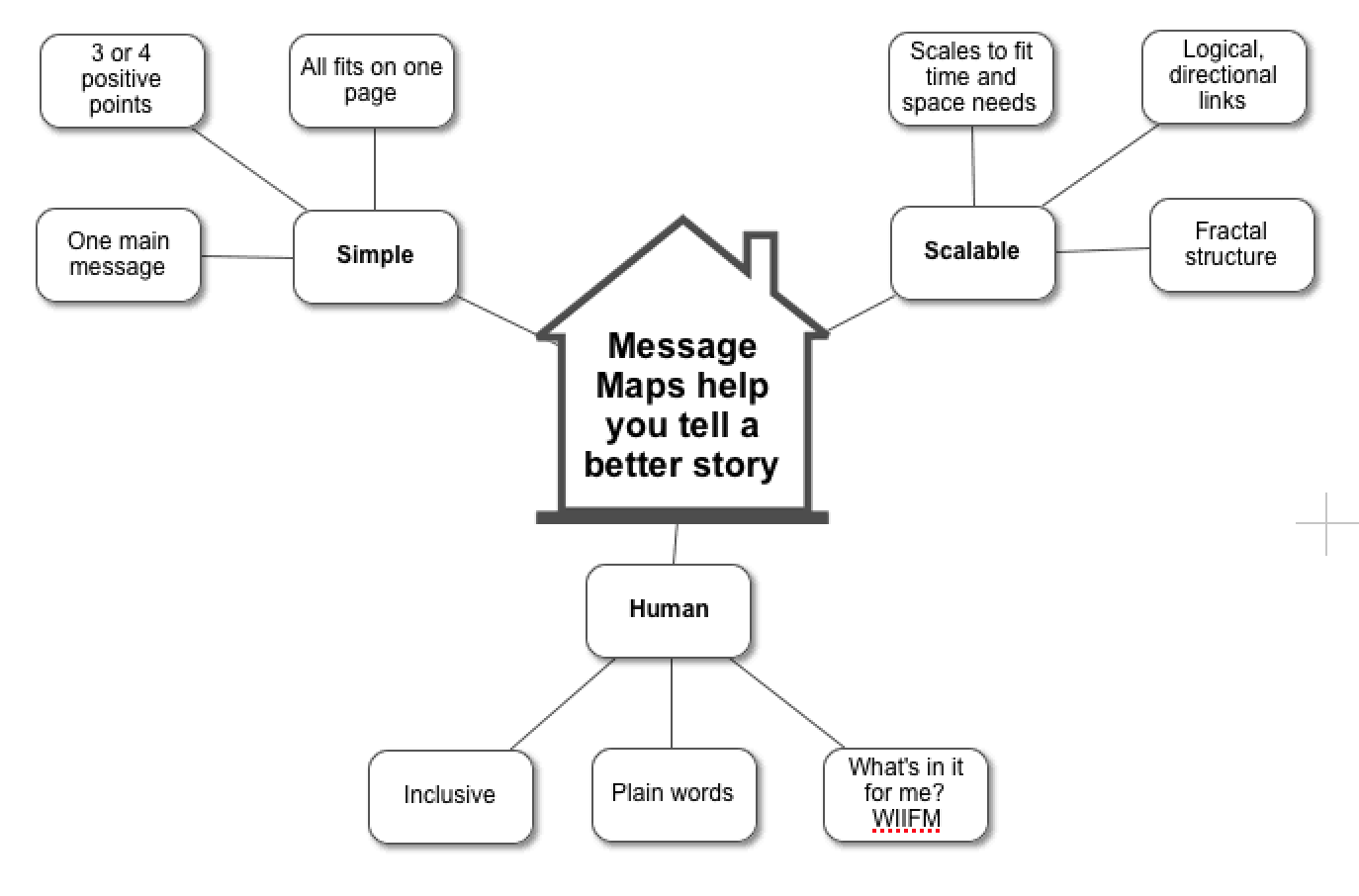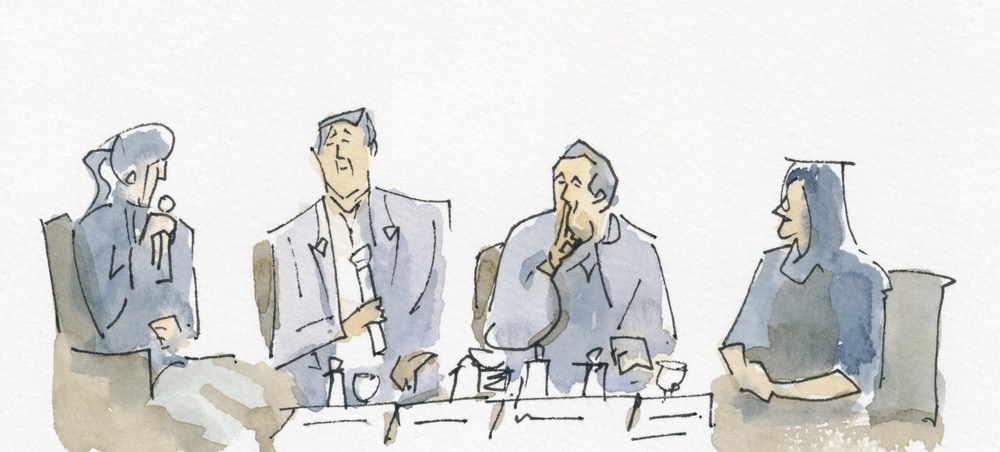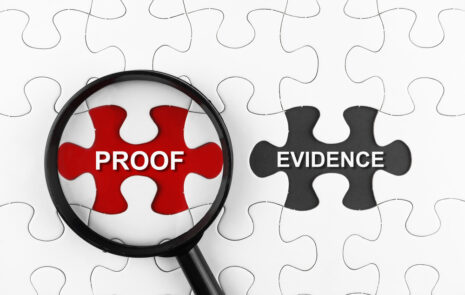
Panel presentations: Does speaker order really matter?
On speaker panels, does the panelist order matter? If you’ve ever attended or spoken on a panel, you know it’s hard to make a panel presentation interesting enough to capture and hold the audience’s attention.
Why? Because each panelist must speak on the same topic yet differentiate from the other speakers by saying something new and relevant.
Each panelist wants to get his or her story heard. But given that all participants will get a chance to speak, does the panelist order really matter?
In a word, yes.
What people remember from a panel
First of all, think about panelist order in light of the much-studied serial-position effect.
People often remember the last items presented, which is called the recency effect. People also remember the first items presented, which is called the primacy effect. But people tend to forget the items that land in the middle.
As Alex Birkett points out in his blog on why order matters, studies show that position order actually affects consumer preference.
Given these data, obviously, panel speakers should ask to go first or last. But which position is better for you? Each offers different benefits.
Advantages of speaking first on a panel
You gain many advantages when you speak first on a panel:
- The first speaker frames the issue and sets the tone. Those who follow must react, and often they reinforce statements the first speaker made.
- Since the first speaker usually is seated next to the moderator, you can easily signal with body language when you want to interject a comment.
- The first speaker often gets a chance to do a quick wrap-up after all of the other speakers.
- Even if the panel moderator loses control of the clock, the first speaker gets all the time allotted.
Advantages of speaking last on a panel
Speaking last on a panel also provides you advantages:
- The last speaker has time to react to all the other speakers and agree, rebut, or propose an entirely different idea.
- Most importantly, the last speaker gets the last word. You win the privilege of closing the panel with one memorable key message.
There’s one catch for the last speaker: you must be prepared to deliver your message double-speed, in case the moderator loses control of the clock and your time gets cut short.
As a person who’s planned many panels and prepared many panel speakers, here’s what I learned. Always ask to go first. If that slot is taken, then ask to go last.
The truth is, most panelists never bother to ask about what position they’ll speak in, so it’s likely you will get your preferred slot.
How to succeed, even in the middle
Even if both slots are taken, and you get stuck in the middle, you can still be a successful panelist. A relevant message and a strong delivery will help you get your story heard.

First, let’s focus on your message. Make sure you have a concise, relevant message that enables you to hook your audience and get your story heard. You can do that by creating a simple Message Map.
Have a quick message ready
By using a Message Map to prepare for your panel slot, you can accomplish your goals in a short amount of time. Whether you have 2 minutes or 20, keep your message quick and to the point.
While your goal is to get your story heard, make sure you use the Message Map to frame it in words that will resonate with your audience. Make sure you tell them what’s in it for them and that you speak in their language, avoiding acronyms and jargon. As my business partner, George Stenitzer, states in his blog on keeping your message short, the average person has an initial attention span of 8.25 seconds. When you consider that the average panel is 45 minutes to an hour, you get the idea!
Tell short stories
Second, let’s talk about strong delivery. One way to differentiate yourself and guarantee a strong delivery is to tell stories.
As Jo Miller says in her blog on panels, stories help people learn more about who you are and therefore relate to you better. Your short stories need to be relevant to your audience and help reinforce your message.

In addition to what you say, how you say it is key. Speak confidently and vary your tone. Don’t be the monotone speaker who puts the audience to sleep!
Taking the right tone helps your audience pay attention, so you get your story heard. Speaking of paying attention, pay attention to the audience while the other panelists are speaking. Are they bored? Did they resonate with a certain point your fellow panelist made? Use this information to better reach the audience when it is your turn to speak.
Should panelists use slides?
If you use slides, which I don’t recommend for a panel, make sure the focus is on you, not your slides. In his blog about great panel discussions, Scott Kirsner says, “No one has ever left a conference or seminar saying, ‘I just wish there was more PowerPoint.’”
If other panelists are using slides and you feel that you must as well, create slides that add emphasis to your message, not slides that spell out your story word for word. In the end, regardless of the panelist order, your short message and strong delivery will get your story heard.
Regardless of your position on the panel, always conduct a dry run. If you can, speak with all the other panelists on a preparation call so you have an idea of the points they plan to make. Preparation is key to a successful presentation.
For more ways to deliver on-message communications, subscribe to our blog.
Related Posts
Presenting? Here’s how to handle tough audience questions
Have you noticed that fewer and fewer presentations leave time for audience Q&A? I’m not sure if this trend is due to conference organizer...
Want to submit even better RFP responses? Involve marketing
Involve marketing for a better RFP response. The RFP (request for proposal) response. The long detailed document, that if done well, gets you a...
What You Taught Me About Content Marketing: Boil It Down!
Lessons about content marketing. As I analyze the content you shared most on social media over the past year, I’m learning a lot from...
How to prove content drives sales?
How to prove content drives sales? A marketer at OMD Worldwide asked “How to tie specific content executions to sales and brand metrics?” It’s...





